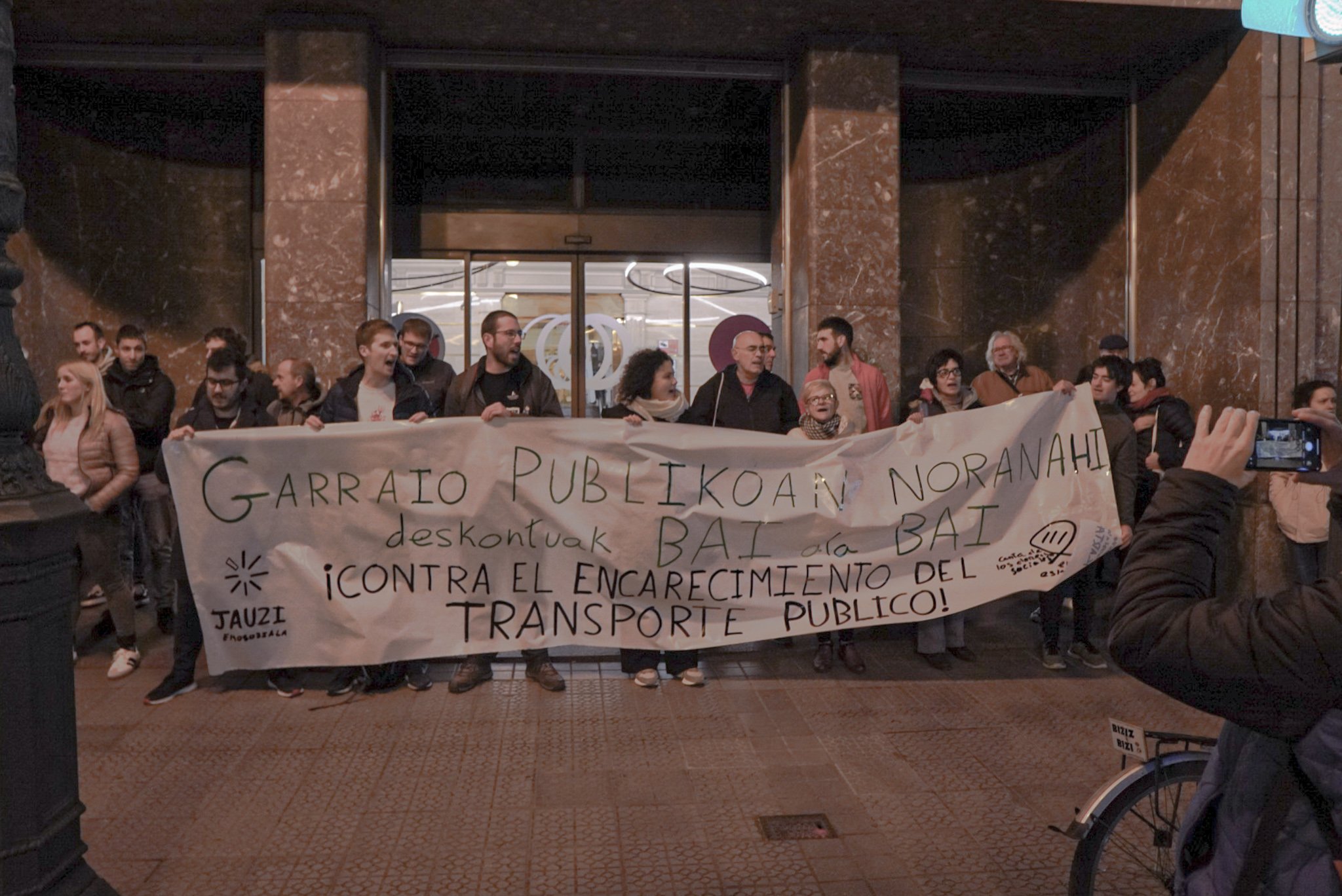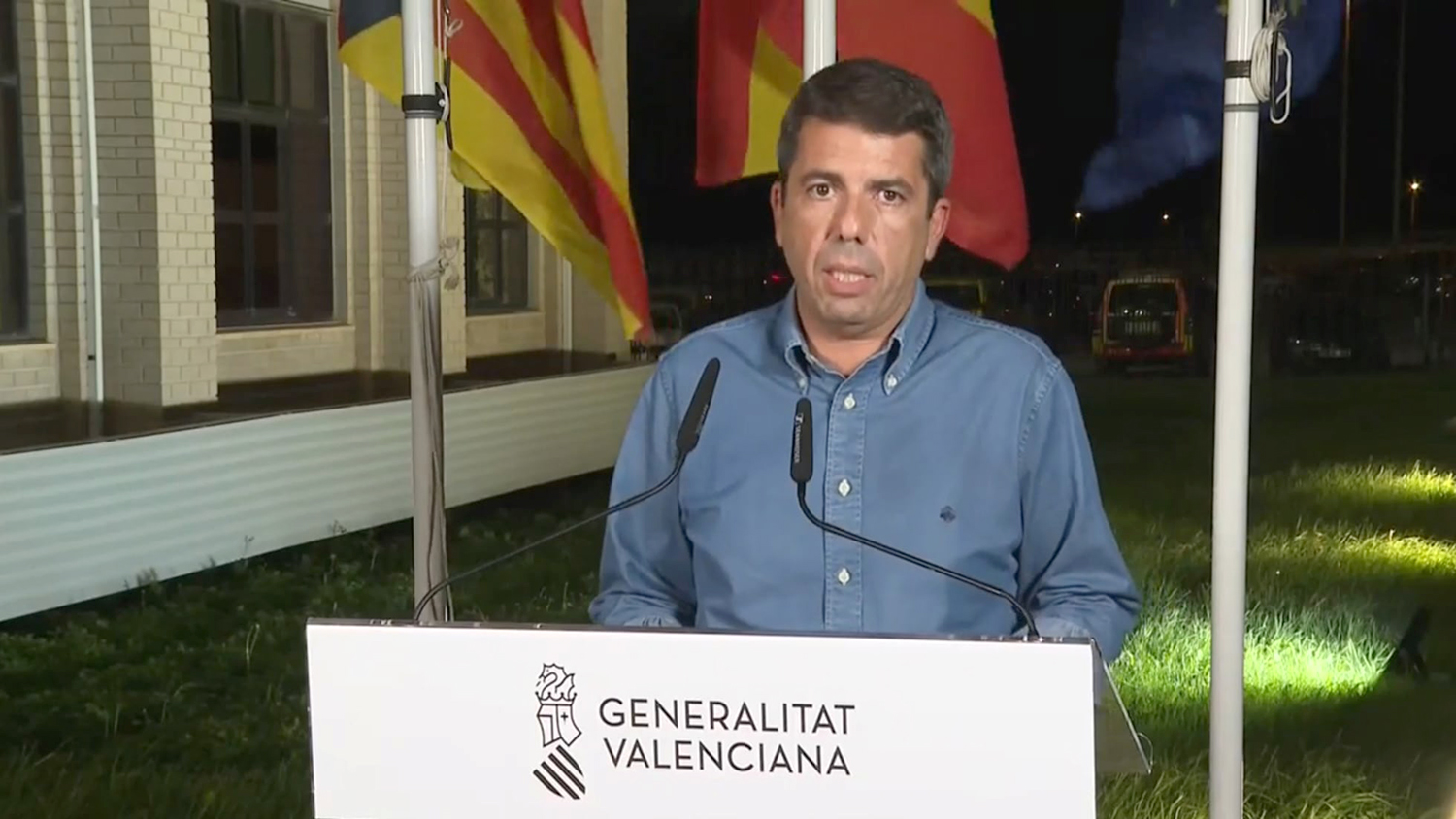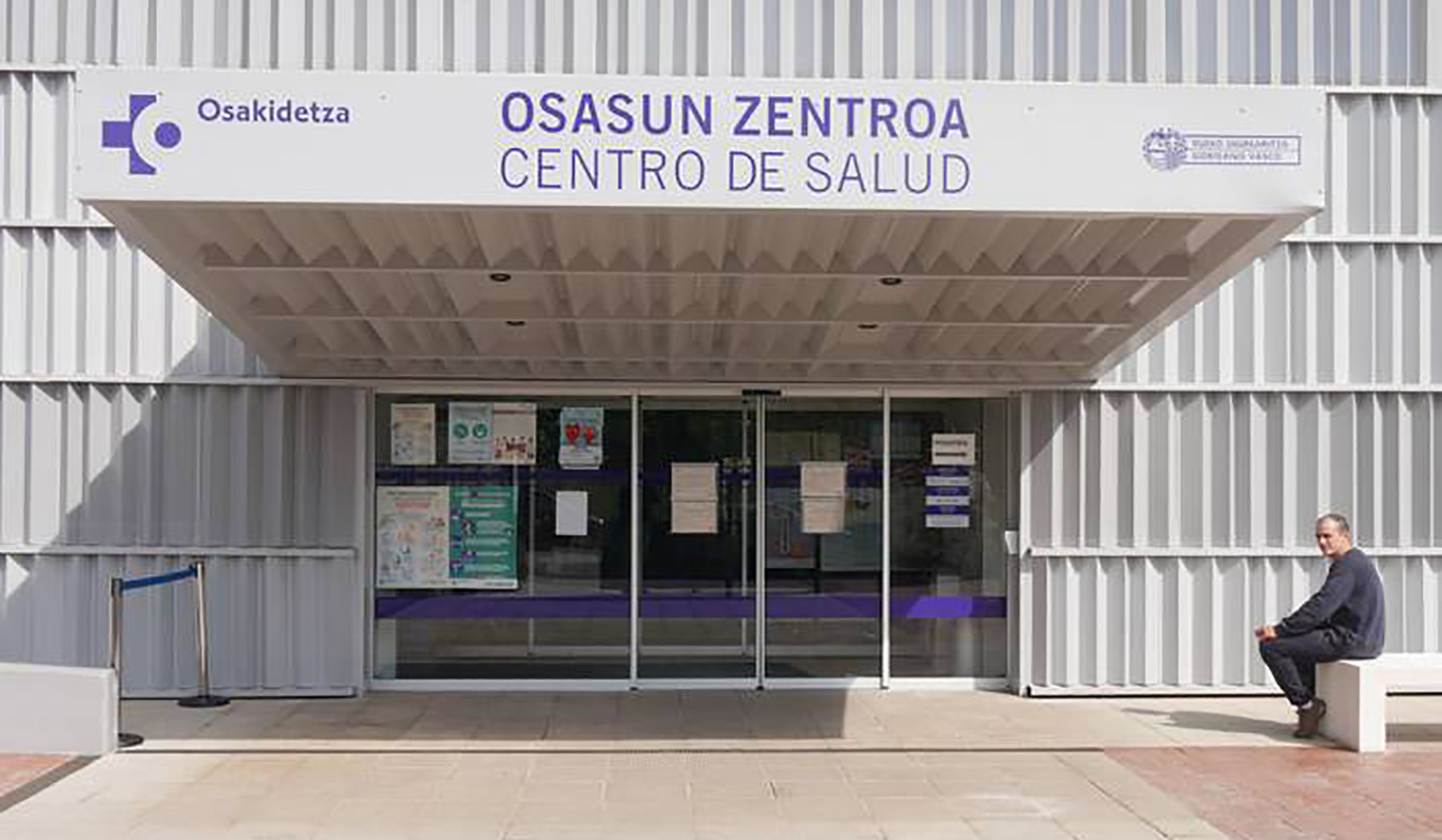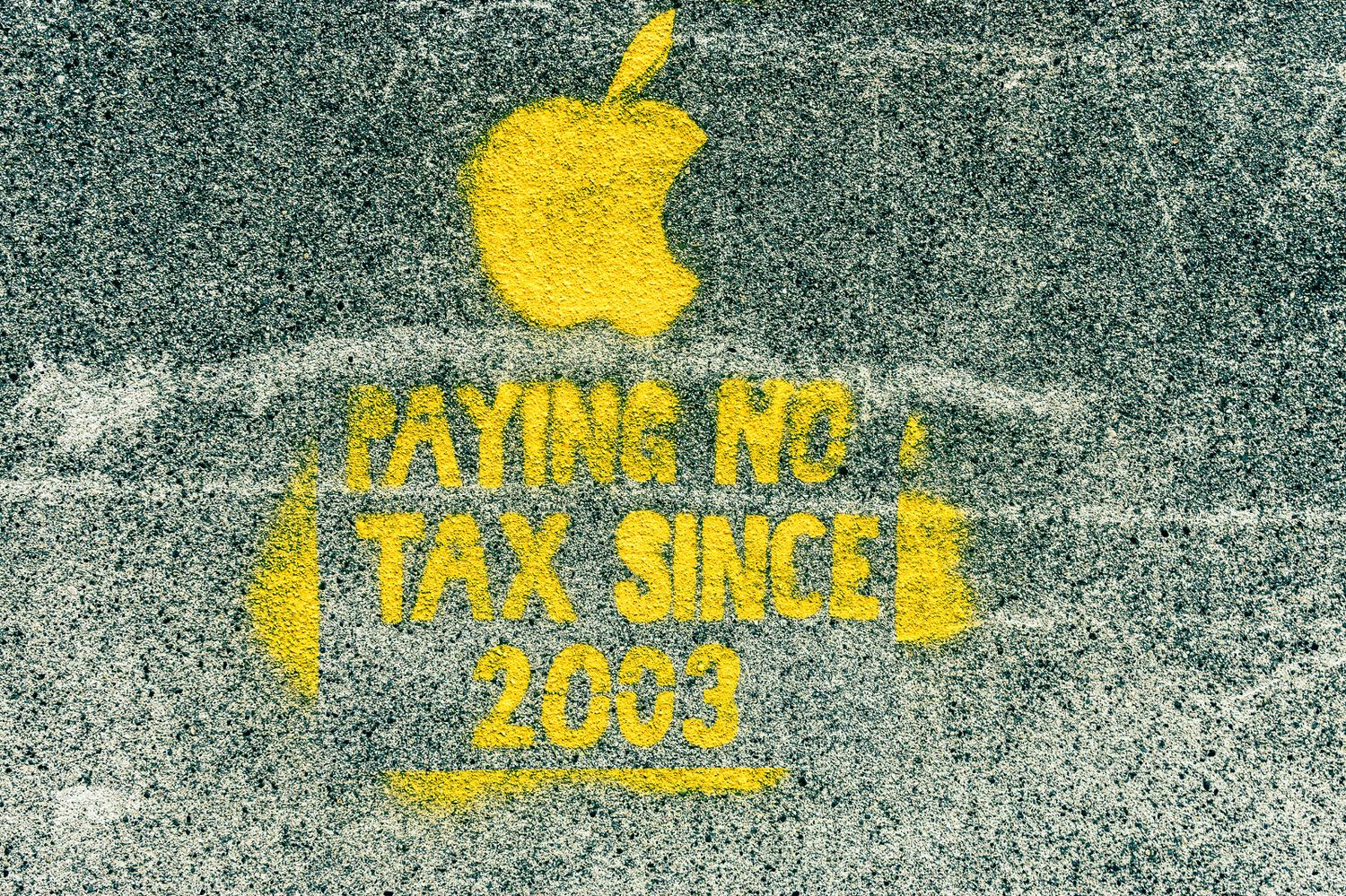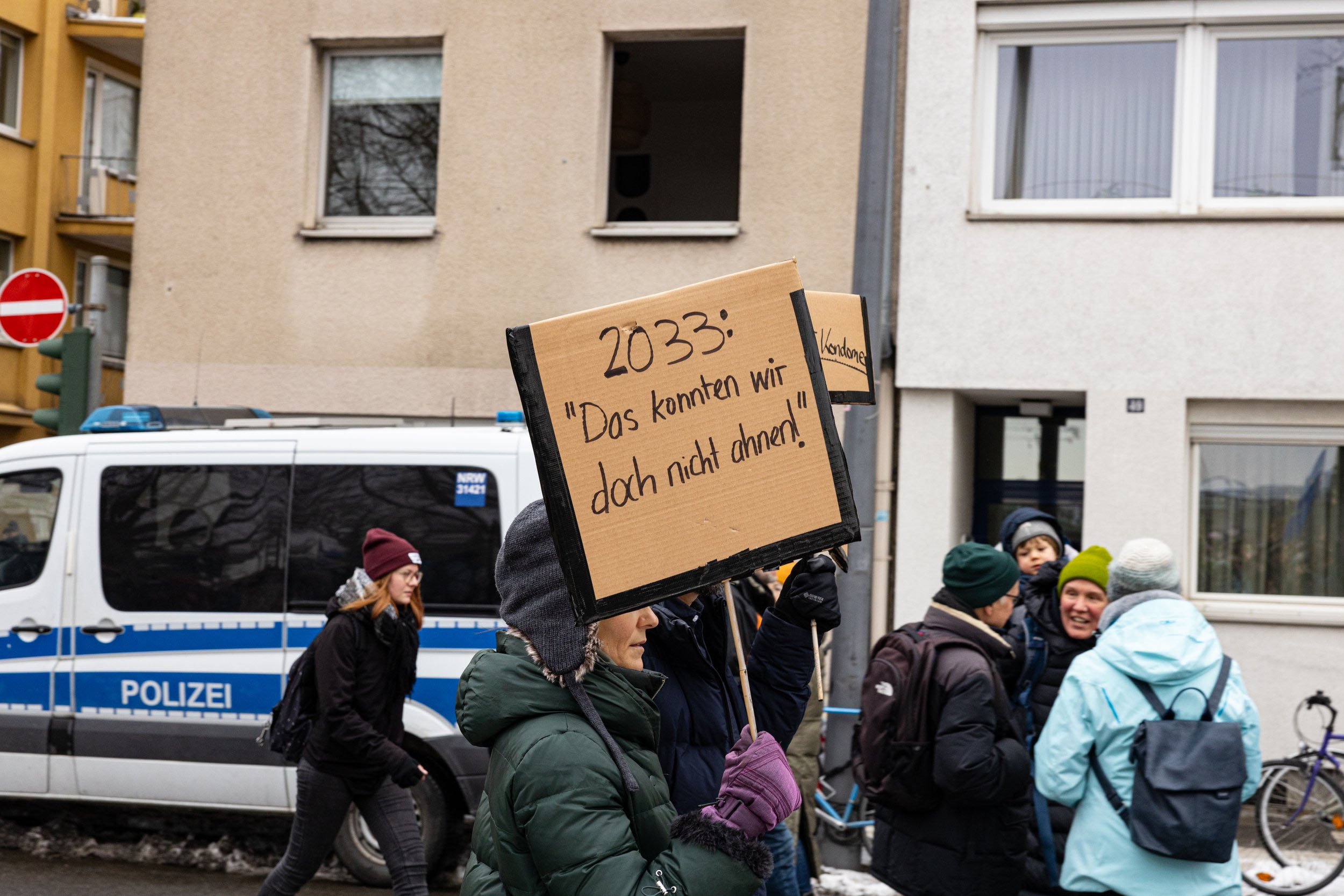Care for Felixstow chargers: You can leave without Olentzero gift
- The stowage strike in the English port of Felixstow has revolutionized the container trade model that has been imposed in recent decades. In the United Kingdom, which in the 20th century was 80,000 stowage workers in ports, today they do not reach 10,000, but they have the capacity to collapse shipping, demonstrating that the system has been self-defeating for wanting to grow. As workers' solidarity disperses, millions of tonnes of products coming from East Asia to Europe can reach Christmas on time.
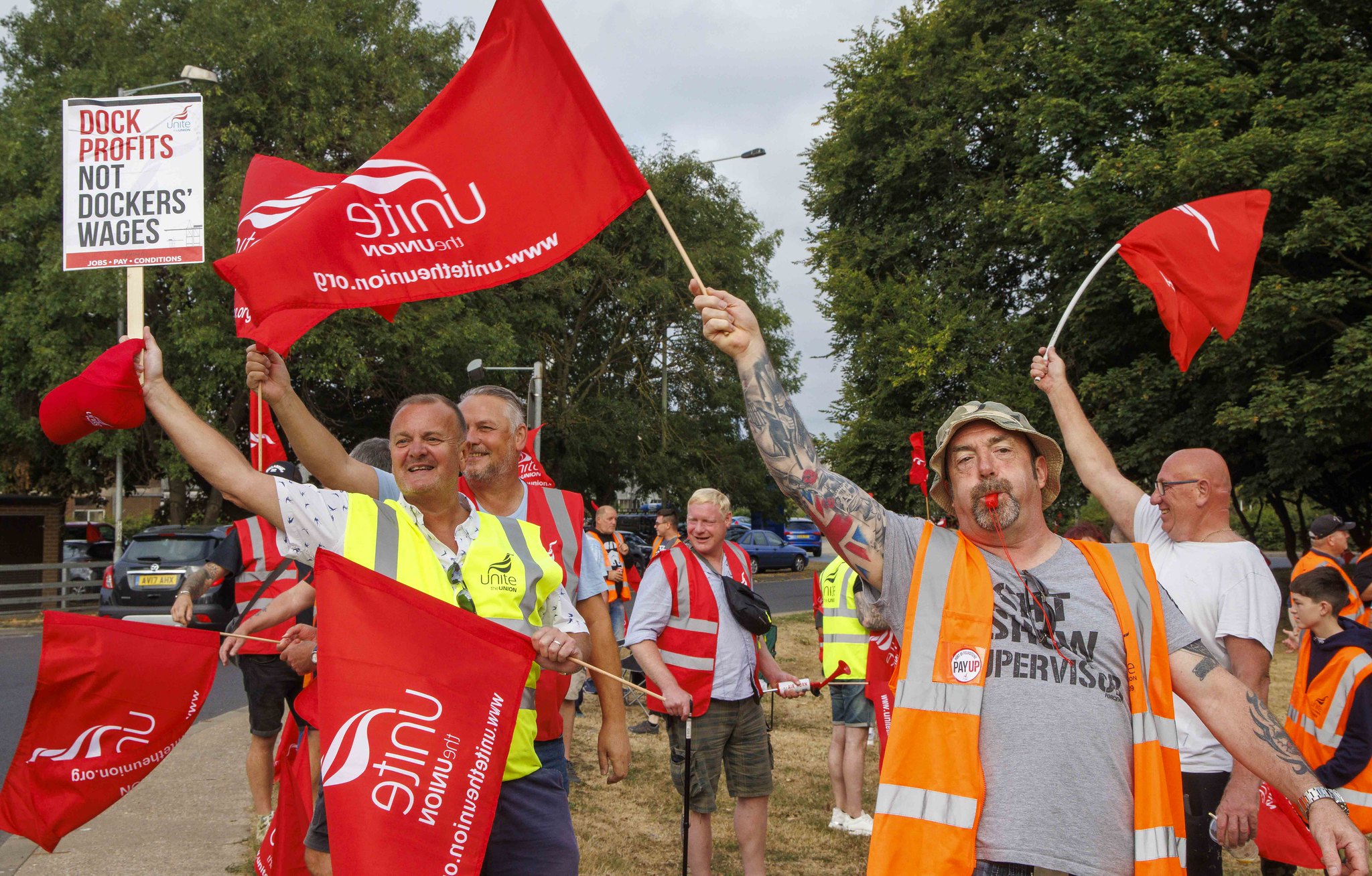
You don’t have to stay, you can go,” said Clemence Cheng Felixstow’s Chief Executive Officer of Port Felixstow to one of his employees when he told him he was not satisfied with working conditions. Cheng went down from the office to the ticket of the strikers who were in the port to convince them to leave the protest from day one, but his attitude further aggravated the workers. It was 20 August and the strike of the dockers of the main port of England extended for eight days, endangering the country of one of the major trade collapses of recent times.
In the weekly Socialist Worker we read journalist Isabel Ringrose the fragment between red jacket workers and tie executive Cheng. Ringros has followed Felixstow’s strike in this left-wing media, which had no hesitation in bringing to the surface the word Rejoice or “happy” when Margaret Thatcher died, and has explained why shippers can condition world trade, to the point of conditioning the arrival of products from the Christmas season and even the day to European consumer households.
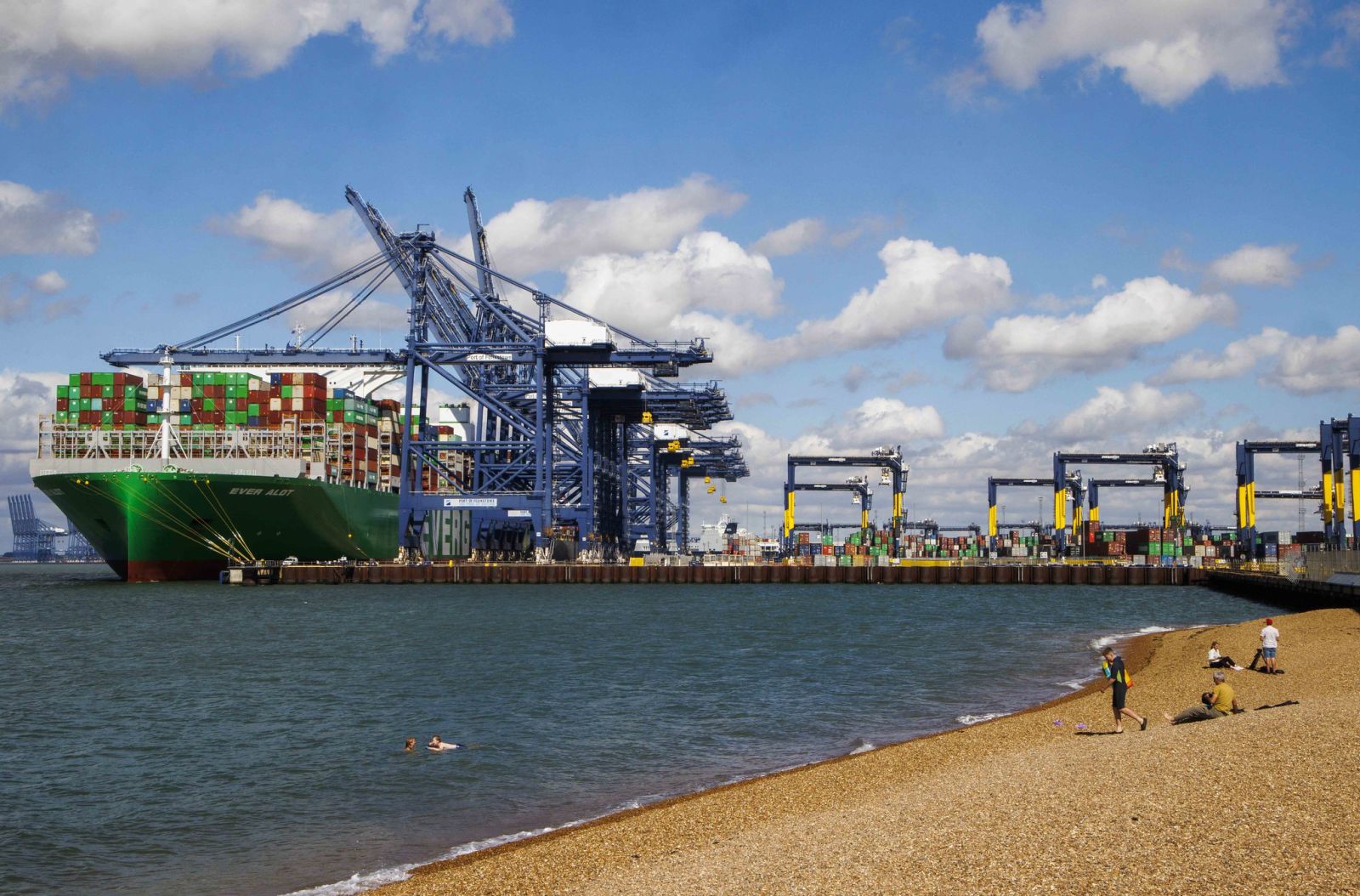
“The strikes at the port of Felixstow show that, although attempts to modernise the industry have considerably reduced the number of port workers, they still have power. Employers are disregarding the interruptions caused by strikes, saying that they will not have ‘long impacts’, says Ringros in the analysis Why dockers still hold the power to sink production (“Why shippers still have the power to sink production”). He explains that the cargo ships going to Felixstow are too large to be discarded in other ports, and like the Suez Canal Cruise, the Ever Given, which a year ago was crossed in the Suez Canal, this demonstrates the weakness of the global supply chain: “Any obstacle, including workers’ action, means that huge profits are lost,” the journalist warns.
Just like the boat 'Ever Given', which was crossed in the Suez Canal a year ago, Felixstow's strike shows the weakness of the global supply chain
The death of Queen Elizabeth II has moved the United Kingdom for ten days and has dyed pink newspapers as the English know well, but it has not been sufficient reason for the shippers to leave their fight in the port of Felixstow. The authority of the company carrying the port management proposes a salary increase of 7%, a figure they would like in workshops such as Mercedes-Benz de Vitoria. But seeing that inflation is above 10%, they are not prepared to accept more impoverished, and in the survey of 1,900 workers, in which 78% participated, 82% voted against the proposal, they know that they have the capacity to demand much more.
Surely by the time this Net Ondoan arrives, another eight-day strike will have begun called by the powerful union Unite, which will last at least until 5 October: “Instead of paying a fair real wage, they have tried to impose a real wage reduction,” said union secretary general Sharon Graham on Twitter to return to the strike. Those responsible for trade logistics in the UK and many other countries are now trying to anticipate the incalculable consequences of this decision.
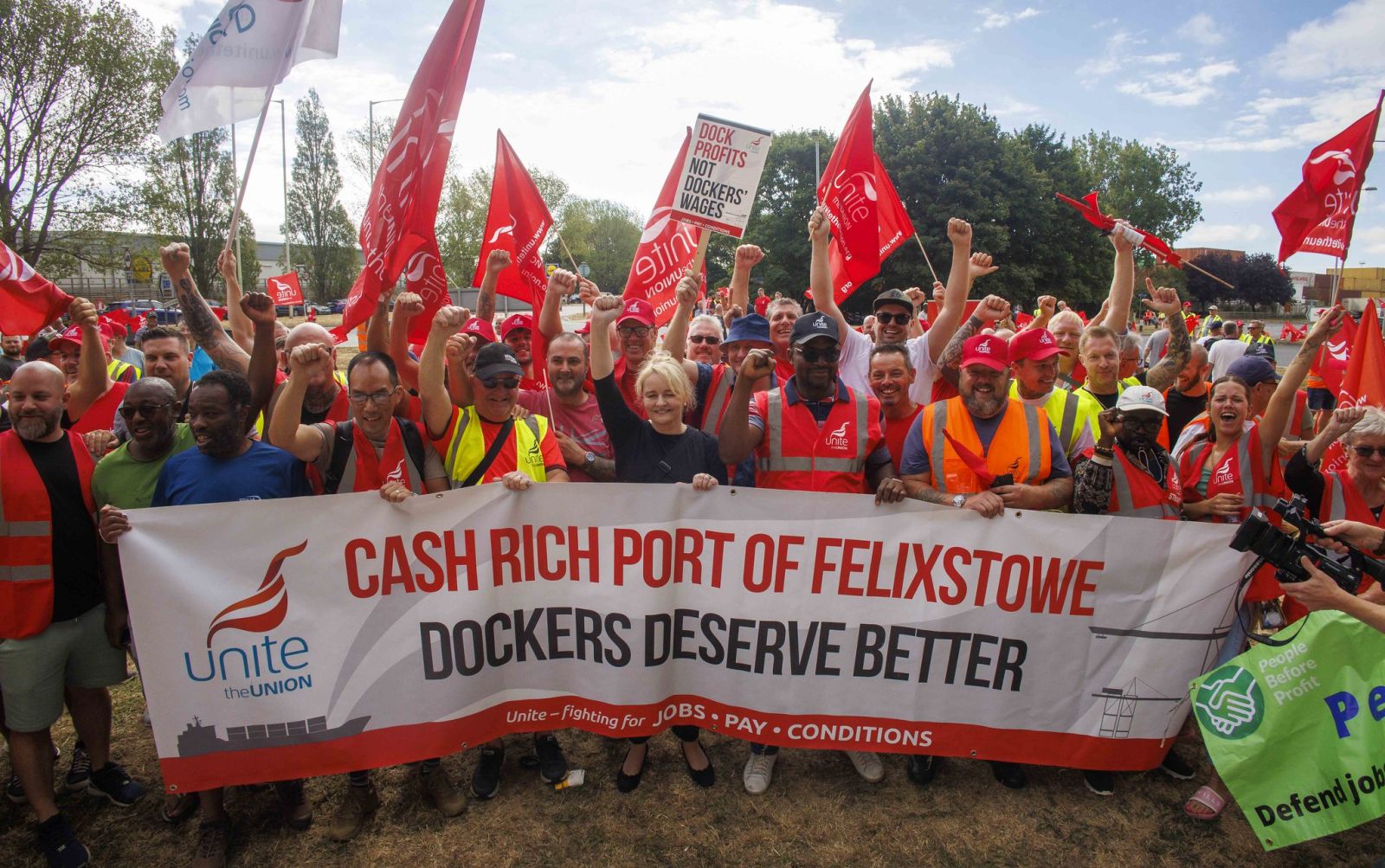
One fact could be used to understand Felixstow’s strategy: Although it is not in the Top 10 of the largest European ports, with the Dutch giant Rotterdam and others far ahead in tons moved, it receives 48% of the containers reaching the UK. Therefore, “without stylers the process would fall completely,” says Ringros in his analysis.
The nearest industrial port to London receives 48% of the containers reaching the UK
According to the journalist, the trip from Southeast Asia to the British Isles takes about 40 days, which means that the strike can affect supplies for this Christmas: “Brands like Amazon, General Mills, Diageo, Kellogg or Mars Foods will be the ones suffering from pain, as their products will be wrapped in containers.”
Port authorities and commercial companies have tried to divert transport to other ports, but they don't have it easy, the HGV of one or the shortage of heavy vehicles, the Brexit of another... all of this influences the chain. And there's another remarkable factor: The boats arriving at Felixstow are too large to enter any pier.
Each container measures a TEU (Twenty-foot Equivalent Unit) (6.1 meters in length) and fit in one boat thousands of times. In the last half century, growth has been exponential: Although in 1950 cargo ships transported a maximum of 800 TEUs, since 1968 capacity has increased by 1,200% to 25,000 TEUs, with the exception of oil, coal, iron, etc. They're transported in bulk, 90 percent of the world's shipping cargo today is transported across the oceans, as we counted in another nearby Net.
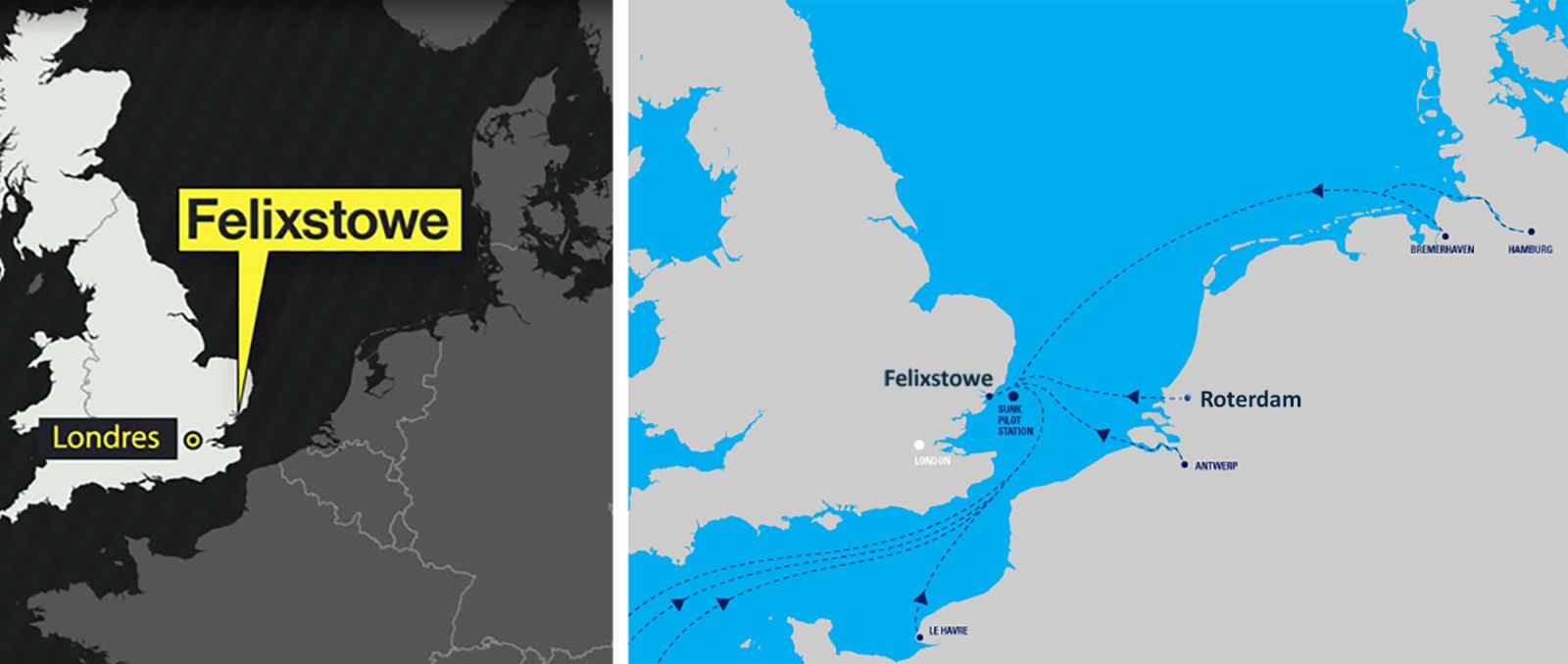
From the summer of disgust to the winter of global disgust
Containerization, or the transportation of goods through standard containers, has been a process of shipping companies of cost reduction and profit increase over the last 70 years, but also of eliminating the headaches that cargo workers brought to the employers.
“The docks have been the focus of battle since the beginning of Capitalism in the UK,” says Ringros. In 1889, the port workers rebelled against a system that only guaranteed them the sporadic work of a few hours. His strike was key to the birth of the mass union movement.” Thus, in the twentieth century they had great achievements, such as the creation of the National Board of Workers of the Port for recruitment between unions and employers. But starting in the 1970s, with anti-union laws, unity broke and despair prevailed among workers. “Since then [porters] have been seen as the weakest link in strikes. But now Felixstowe is at the forefront of resistance.”
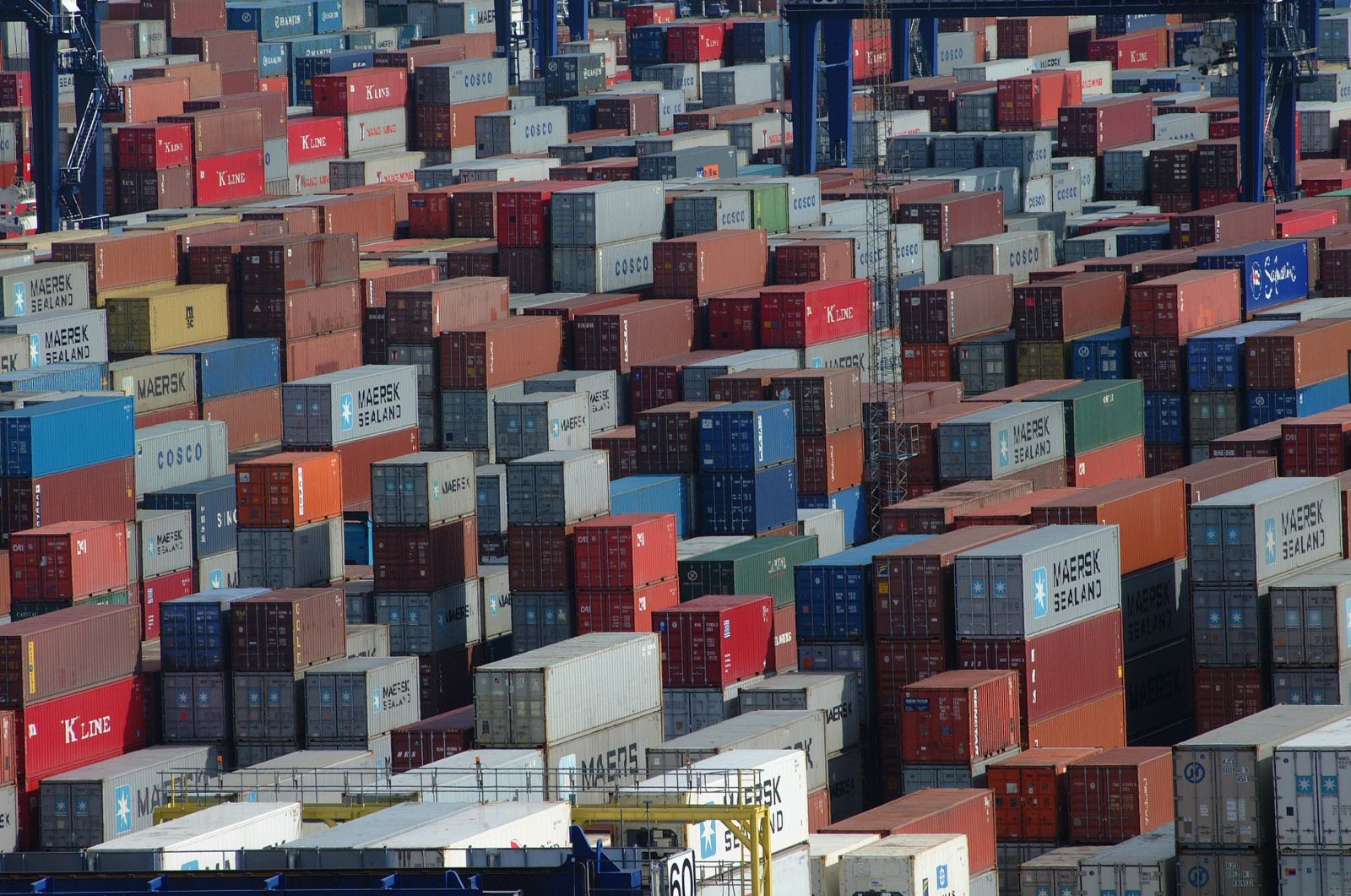
As the container system has expanded, port staff have decreased but remain important: In the 1950s there were 80,000 chargers in the country, in 1973 43,000 and in 2016 only 10,000, but what used to be loaded and unloaded among thousands of people, a few do it through large cranes and computer programs. It is therefore up to those who wanted to remove the chain to stop or continue the chain.
What used to be loaded and unloaded among thousands of workers, they do a few with large cranes. It is in the hands of those who wanted to take off the chain, therefore interrupting or continuing
In addition, the workers of Felixstow, the second largest port in England, Liverpool, have also been on strike since 19 September. According to Reuters news agency, which has over 560 employees, the port authority has adapted night shifts to reduce the impact of the strike.
But the maritime trade sector already sees port congestion as inevitable: “We look forward to Panic with holiday shipments,” explains a merchant to Container xChange. This logistics platform works for 1,500 companies renting containers in 65 countries and has announced that the Felixstowe and Liverpool strikes will be a “double blow” to the supply chain. The cargo will be diverted to European ports such as Hamburg, Rotterdam, Le Havre or Bremerhaven, but its occupation is very high, as according to the analysis by Container xChang many empty containers are accumulating. In addition, the Golden Week in China at the beginning of October, with many closed workshops, Typhoon Muifa or the obstacles that droughts have brought in Europe in navigable rivers, have created a perfect storm for this autumn.

But the fall will be heated by workers, stimulated by rising prices and impoverishment. In England, Scotland and Wales, in addition to the dockers, the railway workers, the postal services, the garbage collectors… have started a series of strikes – which many remember the Summer of Discontent of 1979, when he protested the government of Margaret Thatcher – for Liz Truss to take over Boris Johnson. The word “humanitarian crisis” has also begun to be used, as the journalist Axier López explained in this weekly (No. 2.791). ). And it is known that what happens in the British Isles affects the old continent. Not in vain, UN Secretary General Antonio Gutiérrez has announced the arrival of the “winter of global dissatisfaction”.
Isabel Ringros prefers to talk about the “globalization of solidarity” in her analysis of the Socialist Worker. He explains that Unite has received many messages of support from workers from other countries, including the Netherlands and the United States. The European Transport Workers’ Federation (ETF) and the International Federation (ITF), which brings together 19 million carriers, have launched a joint communication in favour of shippers and issue a warning: “Full protection and mobilization will be ensured for the success of the strike.” Send the letter to Olentzero as soon as possible, reader.











.jpg)


